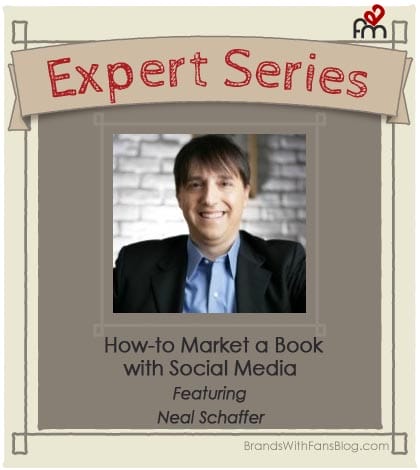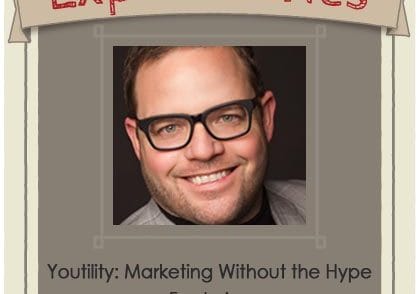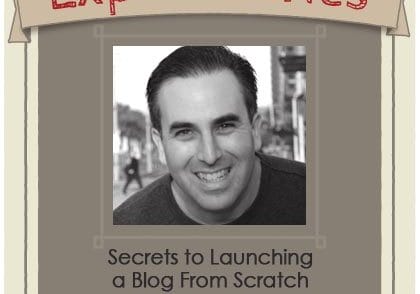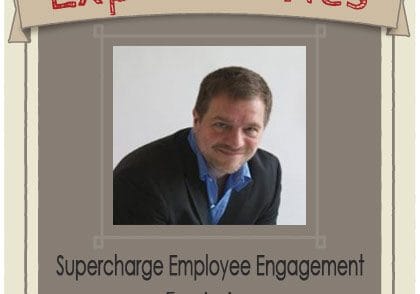Social media book marketing is no easy task. It takes a lot of hard work and dedication, even with the power of social media behind you. This month for our Expert Series we had the opportunity to talk to social media consultant, speaker and author, Neal Schaffer. He shares his experience with marketing his latest book, “Maximize Your Social: A One-Stop Guide to Building a Social Media Strategy for Marketing and Business Success” published by one of the biggest business book publishers, Wiley.
Neal shares some of the challenges he faced and his greatest success. He talks about the future of digital publishing, audiobooks and of course gives us advice on social media book marketing. Find out what social channels and tactics worked best.
BWF: How is marketing a book using social media different from traditional marketing?
“Social media doesn’t replace anything, it complements everything.”
NS: Marketing a book using traditional marketing requires a lot of money and is not as effective because your traditional forms of marketing aren’t as effective anymore. There’s a lot of noise out there. A lot of people try go that route and it’s really hard, but how do you know if you’re targeting the right people when using traditional forms?
If you’re writing a book and want to market it because you’re trying to reach out to people or people within businesses, you can have a much deeper engagement and promote your content organically in social media. That’s very hard to do in other traditional forms of media, with the exception of maybe email marketing.
With social media, you need to have a website, obviously. If you’re doing email marketing and you have a website, social media is just a really good complement to all that. I always talk about how social media doesn’t replace anything, it complements everything. It gives your conversations, engagements and your content an additional organic reach. I won’t say it’s full out word of mouth marketing, but there is that word of mouth component that you can potentially ignite in social media that is hard to do in traditional media.
BWF: Did social media affect the types of books you sold?
“I think the medium doesn’t matter as much as you engaging with others, sharing content and creating relationships with every tweet, and promoting that you have this book available.”
NS: I am unique in that the topic of my book is social media. It’s nonfiction and it’s providing information for people and businesses to better utilize social media. What better place to promote the book than through social media. It’s not this direct promotion you would have in traditional marketing. It’s previewing the book through a podcast. It’s talking about the book and answering questions. And when people see my Twitter profile, for instance, the book appears on the background and it’s displaying a link to a free sample of the book. I think the medium doesn’t matter as much as you engaging with others, sharing content and creating relationships with every tweet, and promoting that you have this book available.
If you have a book and you’re considering doing an audiobook, I recommend you try it. There is an audiobook for “Maximize Your Social” and unlike my first audiobook where I hired someone to do the work, this time I was able to personally record the entire book. I will say that unless you’re a speaker, it’s no trivial matter. It takes a lot of energy, a lot of time and it may be somewhere where you want to hire and work with an expert in the field instead of trying to do it yourself.
BWF: How do you get your book to be noticed using social media?
“I think it’s less about getting your book to stand out and more about getting you as the author or brand to stand out.”
NS: I think it’s less about getting your book to stand out and more about getting you as the author or brand to stand out. You’re selling yourself, engaging with others as yourself and you’re sharing your content. If you’re a fiction writer, it’s probably going to be a little different. But as you share content from your blog or curated content that’s relevant to your brand or book, it becomes a natural extension. In a sense you’re indirectly promoting your book every time you tweet. I think that’s what a lot of people miss.
“It’s less about getting your book to stand out & more about getting you as the author to stand out.” ~@MaxYourSocial http://t.co/kdrIhnPkCh
— Fandom Marketing (@FandomMarketing) March 4, 2014
The way to differentiate your book in the market really is to differentiate yourself and engage with more people, to create and share more content. It’s the same challenge that businesses have; how do we get heard over the noise?
Sometimes it’s experimenting and doing things different like an audiobook, for instance, or creating a podcast, like I did last year. Doing more videos, doing a Google+ hangout, joining Twitter chats. There are a lot of things you can do in social media to promote yourself and be heard above the noise. It really comes down to understanding your target audience and knowing what social media platforms they’re on and how they use them, and then leveraging that to engage with them, both on a personal level as well as through content.
BWF: Which social networks have performed best with your readers?
“By far, Twitter is the constant.”
NS: With my readers – and if I look at my blog and where we get traffic – by far, Twitter is the constant. Twitter is where people go looking for the news. Twitter is easily the second or third largest search engine that people forget about because that’s the amount of searches that are being done on it, right? It’s roughly equivalent to the amount of searches that are being done on YouTube according to some data. Google is the number one search engine by far. YouTube is number two. Twitter is close, but the difference with Twitter is it is real time. People are looking for information and for news. If you’re a nonfiction author with a book, Twitter’s the place you need to be.
But as far as the other networks, I’d say the number two network constantly has either been LinkedIn or Google+. And I only say Google+ because I have only been active on it more frequently over the last few months and I’m already seeing the results of that.
BWF: What has been your biggest challenge?
“Getting outside of social media and being able to access the traditional media audience.”
NS: The challenge is social media in itself can sometimes be an echo chamber. There’s the social media bubble and everybody’s talking to each other. No matter how much I do in social media, there’s still a part that is inaccessible without knowing people who have relationships in traditional media. We still consume a heck of a lot of media online, a heck of a lot of media through social media, but a lot of the media that we’re consuming online is still coming from those sources of traditional media. And in order to really influence them, it really comes down to do you have relationships with those reporters.
Now, there are ways of creating those relationships through social media, but it really does become difficult to get influence outside of social media just by doing social media. I think that’s the biggest challenge that I have; that perhaps some of the most successful authors that have paid for good PR agencies with good relationships and have seen results that comes at a price. But that’s the one thing that has been a challenge for me, getting outside of social media and being able to access that traditional media audience.
BWF: What was your biggest success?
“I was also able to sign a deal with a major publisher, Wiley.”
NS: I’d say my biggest success is really just having my first two books being able to sell completely through social media to the point where I was able to sell enough to get people’s attention. Not only was I able to build my brand and my business from the social media consulting perspective, but I was also able to sign a deal with a major publisher, Wiley, which is one of the two biggest business book publishers out there next to McGraw-Hill. So I’d say that was a huge success for me. And yeah, that’s what I think I’m most proud of.
BWF: What changes in digital marketing have impacted how you market? What surprised you the most?
“The platforms are always changing and the people who use them are always changing.”
NS: The changes in digital marketing that have affected me are that 1) the platforms are always changing and 2) the people who use them are always changing. As marketers, we always have to adapt to new platforms and try to figure out what makes sense for our business. And that means measuring and making sure that we’re always on the optimal platform with the optimum presence.
The other major change is the emergence of paid social; learning to live with social media becoming a pay to play platform and experimenting with ads. I did a lot of advertising with this latest book, more than I had done before, just to generate brand awareness and direct people to the Amazon page to download. Hopefully, they’ll at least look at it and download the free preview.
What has surprised me the most is the amount of people who will click on a link, whether it is organically posted in social media or through an advertisement. Now, I believe I get a lot of click-throughs because I’m a trusted entity. If you’re not, you need to build up your platform until you are. But social media can really generate a lot of traffic and a lot of at least click-throughs. Now getting the conversion is always the challenge. And whether it’s digital or social, that challenge is still going to remain. But just generating brand awareness for something new and getting people to navigate to a site where you want them to convert, I think it’s never been easier and it’s never been cheaper in the history of digital marketing really.
BWF: What’s the future of online publishing?
“Audio is definitely one aspect of the future of publishing.”
NS: Audio definitely. Smartphones have longer battery life, more functionality to the point where we’re doing more things with our smartphone than our computer, and that includes during downtime. There are a lot of people listening to audiobooks while traveling.
It gives you a way to engage with authors. I haven’t heard the audiobook of Gary Vaynerchuk’s books, but I hear they’re incredible because he offers sound bites that you won’t hear in books. I try to do this with mine too. Audio is definitely one aspect of the future of publishing. And as an extension of that, someday we’re going to have the video book, right? I don’t think we’re there yet, but the technology is there. It’s not hard to do. It’s only a matter of time. You’re going to see a lot of different mediums, including audio and video, including more splicing and dicing of content. A chapter at a time, mini e-books, books that are updated regularly that you pay a subscription fee for.
BWF: What one big lesson have you learned that you wish you could teach others?
“Never promote yourself unless you really feel you have to.”
NS: The one big lesson is to never overly promote your book. It’s not something I’ve done, but I’ve seen people sending emails to all their LinkedIn connections. I’ve seen people write a blog post about their new book every day to just stuff it in your face. I think that you end up losing friends and it devalues your brand over time.
With anything you do in social media – never promote yourself unless you really feel you have to. If you can stick with that mindset, I think you’ll do really well. And then, when you want to post something self-promotional, it’s going to be a lot more effective. Especially, if you build up a fan base, you engage with others, you share content, then, sure, share the fact you have a new book out there, and people will support you. When you overdo it and over self-promote, you cross this line where a lot of people are like, “You know what? This person just isn’t the person that I thought they were.” You always want to keep that trust, which is inherent in having a successful social media presence.
“With anything you do in social media – never promote yourself unless you really feel you have to.” ~@NealSchaffer http://t.co/UdqhuVVSIM
— Fandom Marketing (@FandomMarketing) March 4, 2014
Meet Expert: Neal Schaffer
 Neal is the author of three books, including Maximizing LinkedIn for Sales and Social Media Marketing and his latest Maximize Your Social published by John Wiley & Sons, Fall 2013. Forbes lists him as a Top 30 Social Media Power Influencer and AdAge lists his blog, Maximize Your Business, formerly known as Windmill Networking, as a top 100 global marketing blog. Neal provides social media strategy and consulting, having worked with Fortune 500 companies and a Grammy-award winning musician. He also teaches social media marketing at Rutgers University.
Neal is the author of three books, including Maximizing LinkedIn for Sales and Social Media Marketing and his latest Maximize Your Social published by John Wiley & Sons, Fall 2013. Forbes lists him as a Top 30 Social Media Power Influencer and AdAge lists his blog, Maximize Your Business, formerly known as Windmill Networking, as a top 100 global marketing blog. Neal provides social media strategy and consulting, having worked with Fortune 500 companies and a Grammy-award winning musician. He also teaches social media marketing at Rutgers University.
Want to be featured next? Fandom is looking for social marketing rock stars to share their stories, case studies, tips and expertise. Check out our blogging guidelines and contact us or tweet us @FandomMarketing today.





No Comments